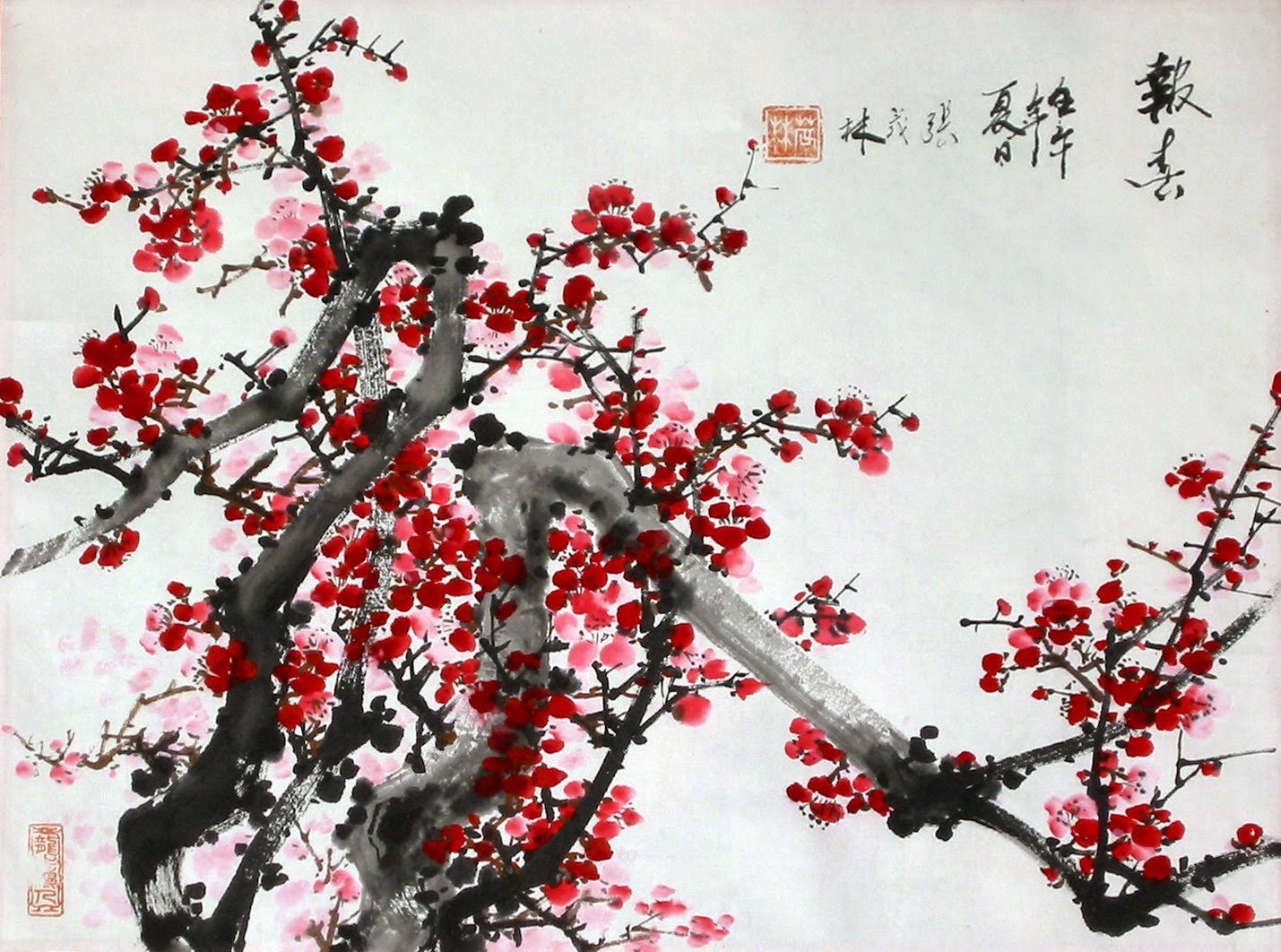Graphic Design
Wednesday, 4 June 2014
Ink wash painting
Ink wash painting, also known as literati painting is an East Asian type of brush painting that uses black ink—the same as used in East Asian calligraphy, in various concentrations. For centuries, this most prestigious form of Chinese art was practiced by highly educated scholar gentlemen or literati.
History
Ink wash painting developed in China during the Tang Dynasty . Wang Wei is generally credited as the painter who applied color to existing ink wash paintings. The art was further developed into a more polished style during the Song Dynasty. It was introduced to Korea shortly after China's discovery of the ink.
Materials and tools
Ink wash painting is usually done on xuan paper (Chinese) or washi (Japanese paper) both of which are highly absorbent and unsized. Silk is also used in some forms of ink painting. Many types of xuan paper and washi do not lend themselves readily to a smooth wash the way watercolor paper does.
Ink wash painting brushes are similar to the brushes used for calligraphy and are traditionally made from bamboo with goat, cattle, horse, sheep, rabbit, marten, badger, deer, boar and wolf hair. The brush hairs are tapered to a fine point, a feature vital to the style of wash paintings.
Different brushes have different qualities. A small wolf-hair brush that is tapered to a fine point can deliver an even thin line of ink (much like a pen). A large wool brush (one variation called the big cloud) can hold a large volume of water and ink. When the big cloud brush rains down upon the paper, it delivers a graded swath of ink encompassing myriad shades of gray to black.
Once a stroke is painted, it cannot be changed or erased. This makes ink and wash painting a technically demanding art-form requiring great skill, concentration, and years of training.
Four Gentlemen
The Four Gentlemen, also called the Four Noble Ones, in Chinese art refers to four plants: the orchid, the bamboo, the chrysanthemum, and the plum blossom. The term compares the four plants to Confucianistjunzi, or "gentlemen". They are most typically depicted in traditional ink and wash painting and they belong to the category of bird-and-flower painting in Chinese art.
The Four Gentlemen have been used in Chinese painting since the time of the Chinese Song Dynasty because of their refined beauty, and were later adopted elsewhere in East Asia by artists in Korea, Japan, and Vietnam. As they represent the four different seasons (the orchid for spring, the bamboo for summer, the chrysanthemum for autumn, and the plum blossom for winter), the four are used to depict the unfolding of the seasons through the year.
The orchid
The Bamboo

The Chrysanthemum
The Plum Blossom
Tuesday, 20 May 2014
Idea
Japanese mythology Fujin and Raijin.
He is portrayed as a terrifying wizard-like demon, resembling a red headed black humanoid wearing a leopard skin, carrying a large bag of winds on his shoulders.
In Japanese art, the deity is often depicted together with Raijin, the god of lightning, thunder and storms.
Raijin is a god of lightning, thunder[1] and storms in the Shinto religion and in Japanese mythology.His name is derived from the Japanese words rai. He is typically depicted as a demon-looking spirit beating drums to create thunder, usually with the symboltomoe drawn on the drums. He is also known by the following names:
Skateboard shop
The Skateboard shop not big . Sale the skateboard ,graffiti clothing ,skateboard parts and spray painting.You can buy parts to assemble their own skateboard.
There is a small skateboard track, when guests assembled skateboards in the store, can try on the runway and skateboarding adjustment.Walls full of graffiti, sub shop like a graffiti tunnel.
First to enter the sub shop will be on the wall skateboard attract attention.
Subscribe to:
Comments (Atom)
































